Argentina’s presidential race took on a new tone as it entered its final stretch on Sunday, after President Mauricio Macri and opposition frontrunner Alberto Fernández clashed repeatedly in the second and final debate before the country goes to the polls.
The Juntos por el Cambio leader, seeking re-election in one week’s time, adopted a more aggressive approach in contrast to his performance the first debate, attacking his Frente de Todos rival on issues like corruption through the citing names of convicted Kirchnerite-era officials.
"It is hard to believe that he saw nothing," Macri said at one point, accusing Fernández – who served as Cabinet chief in governments led by Néstor Kirchner and Cristina Fernández de Kirchner – of turning a blind eye to corruption in public works projects.
"When I had differences [with the government], I quit and went to my home," the Peronist hopeful defended. "A judge has never summoned me. I have nothing to do with corruption."
Fernández responded with references investigations involving members of the president's family, including his late father, Franco Macri. The frontrunner alluded to judicial investigations involving the president’s cousin and brother over the alleged payment of bribes related to corrupt public works projects (a probe that also involves former president Fernández de Kirchner, Fernández's running mate).
The two also clashed on the role of state institutions. "Macri appointed judges at will and pursued other judges. We must put a stop to businessmen who corrupt and officials who are corrupted," Fernandez said in an exchange on institutions, criticising the president's use of decrees.
Gesturing to his right with his hand as he criticised the president, who stood at his podium with his arms crossed, there was clearly no love lost between the two.
Neither offered much in the way of policy. Argentina’s stark polarisation, known as ‘la grieta’, was dominant.
SIX HOPEFULS
“Feliz dia todo los madres,” Macri smiled, as the second presidential debate got underway at the Faculty of Law of the University of Buenos Aires (UBA). That was pretty much the only smile from any of the hopefuls for the rest of the night.
Sunday’s debate was the last opportunity for the six candidates – President Mauricio Macri (Juntos por el Cambio), Alberto Fernández (Frente de Todos), Roberto Lavagna (Consenso Federal), Nicolás Del Caño (Frente de Izquierda), José Luis Espert (Unite/Despetar) and Juan José Gómez Centurión (Frente Nos) – to convince undecided voters to back them at the ballot box.
The candidates had four discussion points to address. Opening with security, each hopeful had two minutes on each subject, followed by additional shorter rounds to pose questions and provide responses. They moved onto three other topics after that: employment, production and infrastructure; federalism, institutional quality and the role of the state; followed by social development, the environment and housing. Again, there was no direct interaction, but Macri and Fernández ensured they found moments to criticise the other.
The standout pick from the outsider candidates was Frente de Izquierda left-winger Nicolás Del Caño, who bettered his performance in the first debate in Sante Fe one week ago. The only candidate to dedicate any real time to green issues – one of the three topics listed under the third discussion topic of the night – Del Caño scored points as he highlighted a string of environmental mishaps and warned of a lack of urgency in fighting climate change.
"In this section, I want to refer to a pact where there is no grieta," he said, referring to climate change and decrying "pollution and the looting of natural resources." He went on to reference mining spills, fracking at Vaca Muerta and the use of glyphosate.
The Córdoba-born politician attacked both of the top-tier candidates with gusto, a move echoed by all the other candidates. Lavagna went on to call for stiffer policies and punishment to tackle gender violence. Espert, accusing everyone but himself of being part of the problem, compared the political class to a "virus" that had "destroyed" the country. The economist said he was doing it "for the youngsters, who think the only exit [from crisis] is Ezeiza."
The other outspoken outsider, Gómez Centurión, accused Kirchnerite leaders of running "a true kleptocracy," before closing by declaring he was "not afraid to face either cultural progressivism or the mafias or the corruption that has destroyed Argentina."
RIVALS
Macri, taking flak from all sides, spoke quickly, seemed like he was in a rush to squeeze everything in. He didn’t even look, let alone gesture, at Fernandez as he spoke.
The president stared down the camera, explaining why he deserves a second term. Unfortunately for him, the country is being squeezed by recession. The economy will shrink by 3.1 percent this year, unemployment is up, poverty has reached 35.4 percent and inflation is likely to end the year above 57 percent.
Fernández, 60, is the favourite to win next Sunday, after emerging with a 16-point lead in the August 11 PASO primaries. Most pollsters believe he may even improve on the 48 percent he took then. He needs 45 percent of the vote or 40 percent and a difference of 10 points over Macri to be elected president.
Despite all that, he was less calm this time around than the first. Macri clearly managed to rile him at points. The president, alleging his Peronist challenger would go light on criminals, accused the Kirchnerite governments of turning justice in Argentina “into a revolving door.” Highlighting his government's record on the fight against the "narcos" and drug-trafficking, Macri said previous governments were responsible for the growth of the drugs trade in Argentina.
Fernández countered by attacking Macri on the economy, accusing the president of “uber-ising” the economy. “Entrepreneurs are monotributistas who ride a bicycle and deliver pizza," he charged. There was no letting up. He accused the incumbent him of favouring his "business friends" and "his family" with contracts and deals from the government.
“President, in all matters related to energy, the only thing you did is to fill the pockets with your friends,” he said. “You wonder why as a Cabinet chief did not see corruption in public works projects. And you, in the Macri clan, did you not see corruption in public works? He did not see what was happening in his family, then he told us when his father died that he was responsible. President, let's talk seriously."
According to the TN news channel, that was considered below the belt by Macri, who reportedly called his rival "immoral" in a later row during an advertising break, saying his father wasn't there to defend himself.
FEVER PITCH
After the debate, coverage reached fever pitch. Polls were conducted on who won (the quickest ones said the incumbent) and speculation raged about whether Macri and Fernández had shaken hands onstage at the end. TV channels showed mobile phone footage, zooming in as close as possible to tell. Neither looked at each other in the face. A handshake was implied but covered by another body. (Campaign officials later said they had.)
"If there is no change in attitude after the elections, the transition will be extremely difficult," political analyst Rosendo Fraga told AFP after the debate.
"Each candidate worked to consolidate his own electorate. Macri pointed to an anti-Kirchnerismo hardcore and Fernández to his supporters. Aware of his wide electoral advantage, Fernández did not risk too much and missed the opportunity to talk about the future," concluded political analyst Enrique Zuleta Puceiro.
Marcos Novaro, a sociologist and doctor of philosophy at the University of Buenos Aires told AFP on Sunday that the debate would not be "decisive in terms of choice. People are very determined." He described the economic crisis as key in potentially deciding the election.
Afterwards, one of the president's inner circle told Perfil reporter Ezequiel Spillman that Macri had delivered "a beating." Another told the same journalist that they had intended to "force Alberto to respond, even for corruption issues."That had been achieved through the citing of jailed former Kirchnerite officials, such as Ricardo Jaime, José López and Julio de Vido.
"We let Kirchnerismo show itself as it is," the official added, denying the president's tone had been aggressive.
By the end of the debate, Fernández was mentioning and embracing the record of the Kirchnerite administrations, talking about how we would get Argentina on its feet, as Néstor and Cristina did before him. Yet, confusingly, he seemed to think la grieta was not out in force.
"We will hug everyone," he pitched. "We can all have the country we dream of," he closed.
One more week to go.
– TIMES/AFP/PERFIL












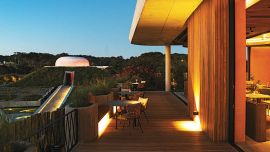
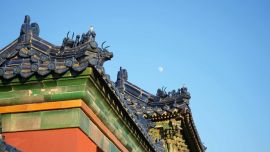







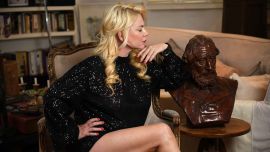
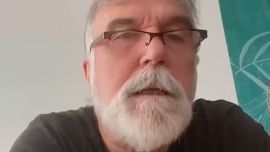
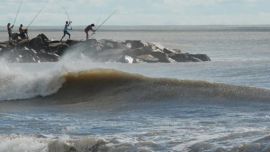
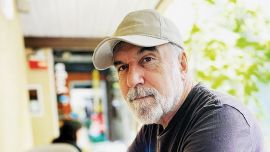
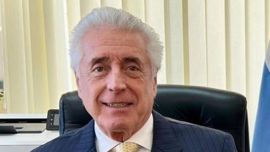
Comments